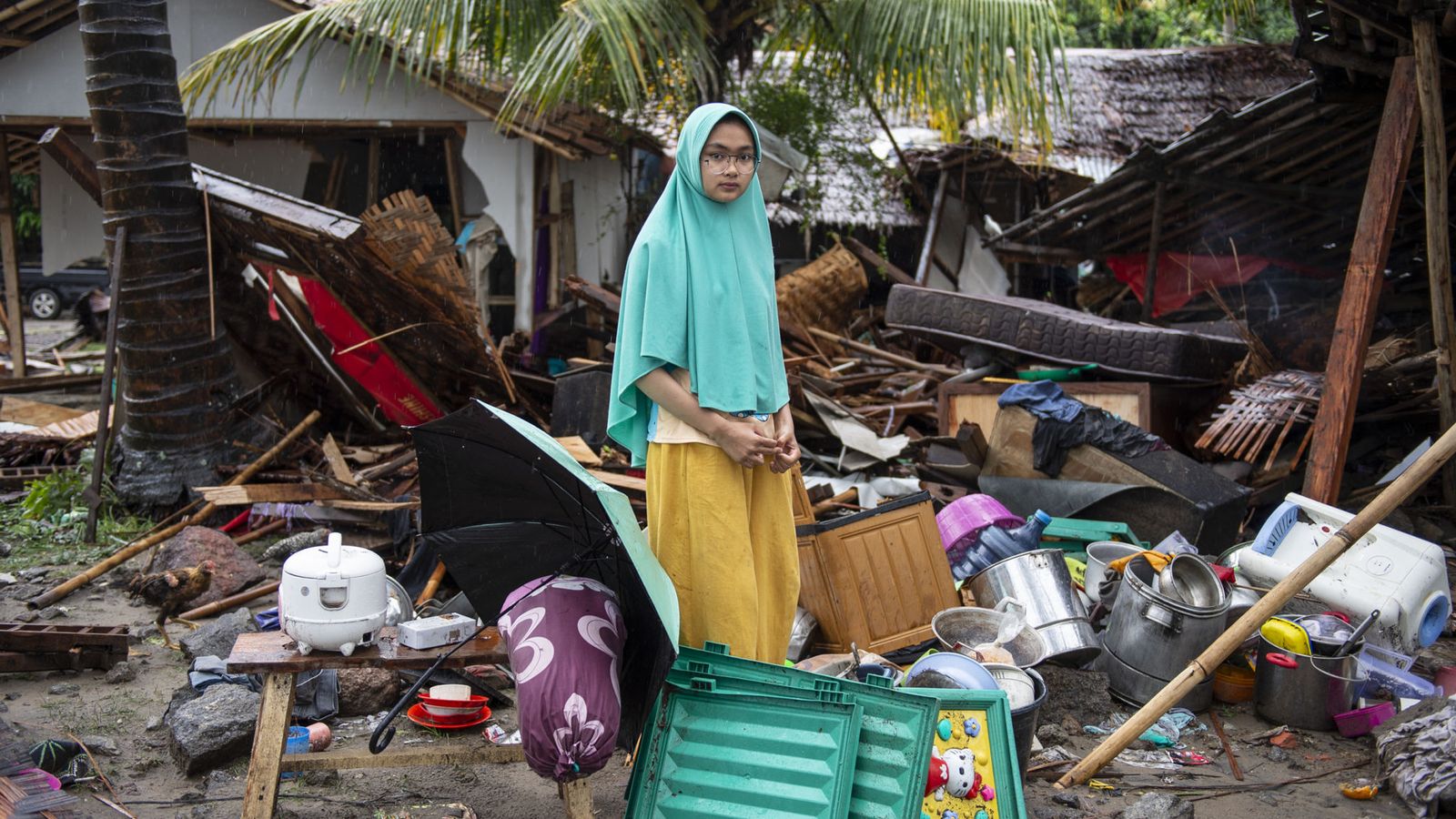[ad_1]
More than 370 people have died in the tsunami that struck Indonesia, sweeping away homes and hotels that line the coast.
Ali Aulia Ramly, a child protection specialist with UNICEF, who is on the ground in the disaster zone, described the atmosphere as calm, saying: “The people have really shown resilience [more] than I have ever seen.”
“People did not expect this because there was no sign at all… They didn’t feel any shaking and then suddenly there was a high water coming,” he said.
More than 1,400 were injured after the tsunami.
The numbers are set to rise as emergency services reach all of the affected areas along the coastlines of western Java and southern Sumatra islands.
Many of the injured are in need of orthopaedic and neurosurgery expertise, according to the Indonesian Medical Association, who say it is sending more doctors and medical equipment.
It is thought many of the injured are domestic tourists who were visiting the beach during the long holiday weekend.
Mr Ramly, who is working on helping the authorities with health and social issues, commented on the attitude of those impacted by the tsunami.
He said: “I think it’s really amazing. I’ve visited a number of affected sites and I met parents who lost their very young son. They were very, very calm and focused and determined to clean up the debris and whatever is left from their house.
“I also met a couple who were grateful also that everyone survived even though the house is totally swept out,” he said.
As well as rebuilding their home, the family are now working on rearranging the marriage of their daughter who was due to wed this week.
He believes the response to the disaster has benefited from lessons learnt after the September tsunami.
The Unicef worker said there were stories of hope being told from the disaster, including that of a missing boy who was found on an island nearby along with at least four others from his boat.
The stranded crew were able to make contact and the child has been able to be transported back to his family.
Rescuers are using heavy machinery and their bare hands to search through debris in the hope of finding survivors.
The worst-affected area was the Pandeglang region of Java’sBanten province, which includes Ujung Kulon National Park and popular beaches.
Indonesian President Joko “Jokowi” Widodo expressed his sympathy.
“My deep condolences to the victims in Banten and Lumpung provinces,” he said.
“Hopefully, those who are left have patience.”
Queen Elizabeth sent a message of condolence to Indonesia, saying she and her husband Prince Philip were “deeply saddened to learn of the loss of life following the devastating tsunami.”
Elizabeth also praised the emergency workers and volunteers aiding victims.
Volcanic activity is continuing in the area and people are warned to keep away from beaches as there are a new tsunami could be triggered.
This is the second deadly tsunami to hit Indonesia this year, but the one that struck the island of Sulawesi on 28 September was accompanied by a powerful earthquake.
Saturday’s disaster brought back memories of the magnitude 9.1 earthquake which spawned a giant tsunami off Sumatra on Boxing Day in 2004. More than 230,000 people died in a dozen countries, but mostly in Indonesia.








